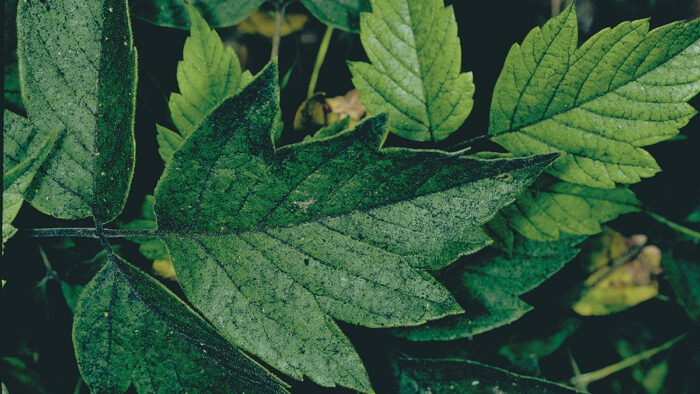
You might not even realize these are insects. Scales often look like small warts or outgrowths of plants themselves. That lump is a living scale mother, sucking sap from your plant and laying eggs beneath herself, well hidden from view.
Scale insects can be serious pests for fruit and nut trees, currants, grapes, and raspberries. Citrus trees are especially susceptible to scale attack.
Many scales produce a white, waxy excretion on their bodies, making them difficult to see unless you drop some alcohol on them. This is rather like washing a fluffy dog. Beneath all that flamboyant adornment is a puny little creature, attached closely to the plant surface on which it is feeding. Once settled, many species will not move again during their life, while others are still mobile as adults.
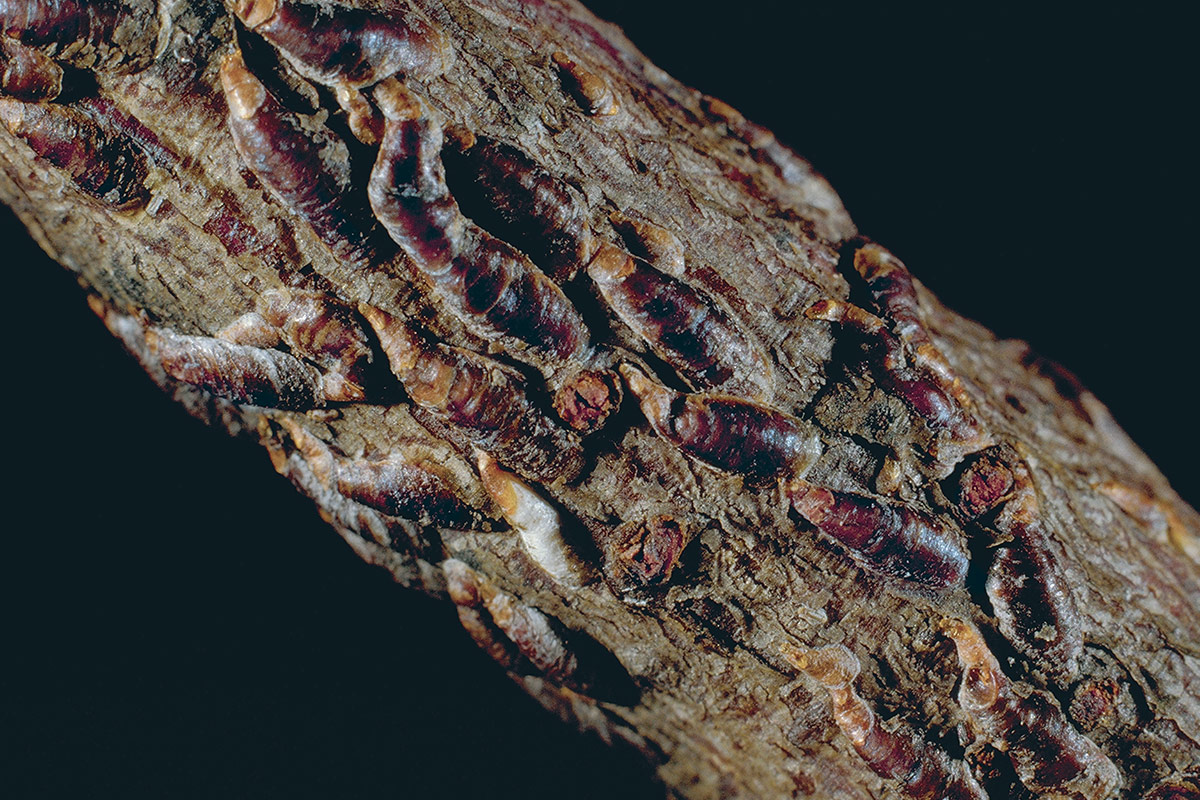
Two types of scale with species diversity
There are so many species of scale insects, it is hard to generalize about them. Most range in size from 1mm to 3mm, and are circular or oval in shape. Their coloring runs the spectrum from brown and black to red or orange; others are spotted or striped. Some look so similar an expert taxonomist can have difficulty telling them apart. But even an amateur can tell the so-called hard or armored scales from the soft ones. Take a penknife and try to pry up the hard outer shell of the insect. If it is an armored scale, the shell will lift off fairly easily, revealing the mother’s body, or perhaps just babies or a packed sac of eggs.
Soft scales, on the other hand, have an external skeleton that does not come off unless they are molting. Like a snake shedding a skin that has become too small, the insect splits its cover and eases itself out, then hardens a new coat that was formed underneath the old one.
Soft scales often secrete honeydew, a sugary solution that is a condensed form of the plant sap the scales imbibe. Honeydew will grow a black fungus called sooty mold, which may coat leaves and twigs. In fact, the mold may call attention to the scale population in the first place. Ugly to look at, sooty mold may interfere with photosynthesis. You can use insecticidal soap to wash it off.
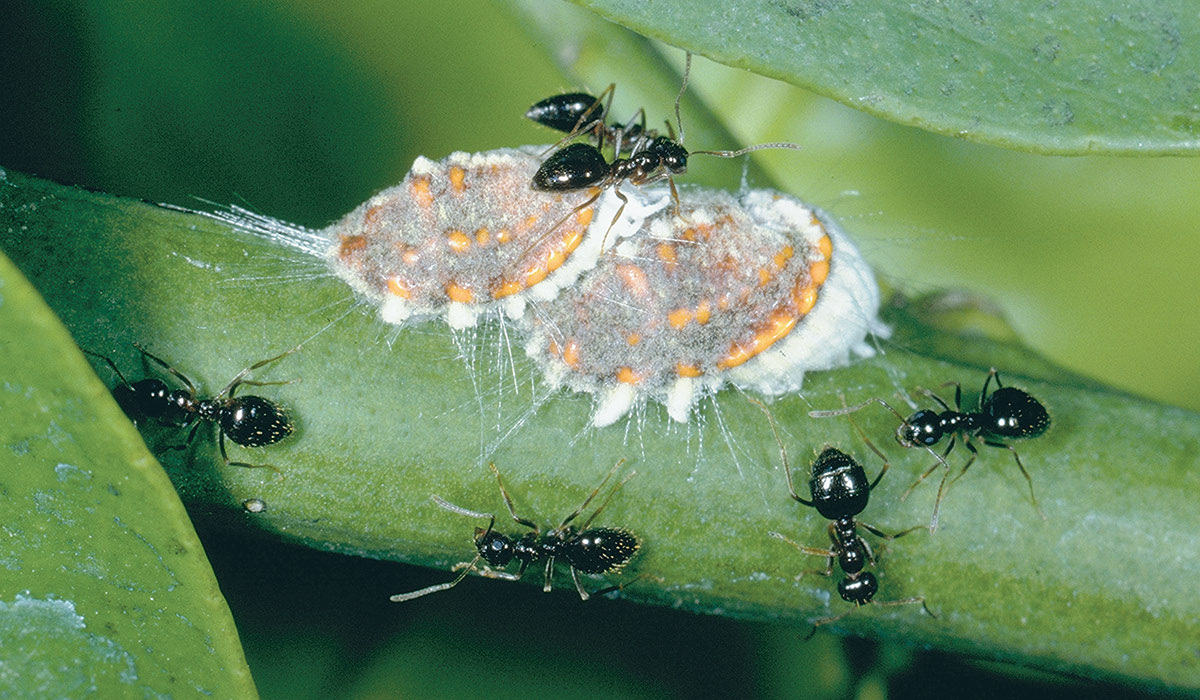
Scales have many natural enemies
Luckily, most scale species don’t become a serious problem because natural insect predators and parasitoids keep populations in check. Examine scales with a hand lens and look for tiny emergence holes, indicating the scales are under attack by parasitoids. Protect these natural enemies by avoiding the use of broad-spectrum pesticide sprays, especially those labeled as harmful to honeybees. Grow nectar flowers to provide them with an alternative food source.
Small populations of scale can be removed by hand with a scrub brush. But if you are worried about a large population on the twigs or leaves of your fruit trees, here are some suggestions.
Check for ants, then put up a barrier
The sweet honeydew will attract ants because it serves as a food source. In turn, they’ll chase away or kill lady beetles and other natural enemies that would normally help control the scales. Wash the ants out of the canopy with insecticidal soap and water.
Then, place a band of sticky tape around the trunk to block the ants from climbing back up. Press it into the bark to get a good fit. You can also spray a 4-in.-wide band of sticky adhesive around the trunk. Both sticky tape and adhesive sprays are available from nurseries and garden catalogs. When the tape loses its effectiveness from dust and debris, renew it with sticky spray or paste available for this purpose. At the end of the season, remove the tape.
Finally, prune off branches that touch fences, walls, other trees, or any objects that could provide the ants with a way to get past the barrier. Also be sure to remove twigs and branches severely infested with scales.
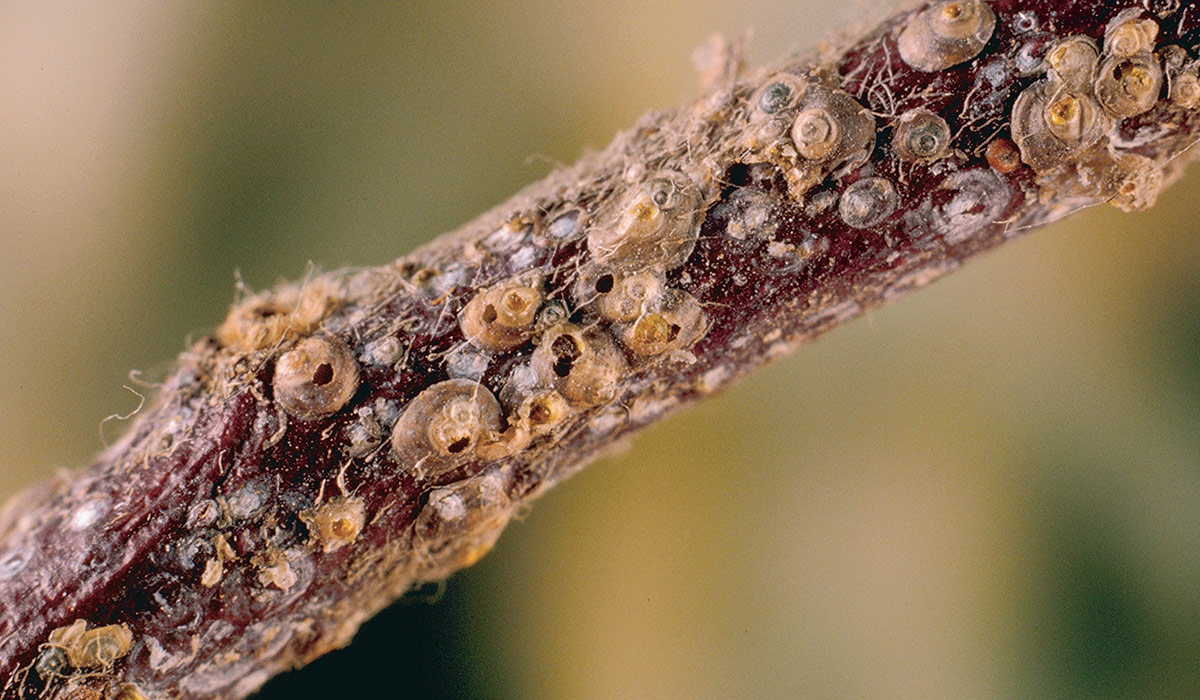
Wash off the crawlers
When young scales, called crawlers, leave their mother and spread out over the surface of the plant seeking a new place to feed, they are very vulnerable. They can often be detected with the naked eye, although they are more easily seen with a 10-power hand lens or a magnifying glass. Depending on the species of scale, there may be one to several generations of crawlers each year. Wash the trunk and limbs with insecticidal soap and water when these little crawlers are present.
Use a refined horticultural oil
If you have tried the above measures, and natural controls are not working well enough, you can spray with a specially refined horticultural oil called supreme or superior horticultural oil. The oil smothers the mature scales, so make sure to coat the insects completely. For small areas covered with scale, you can use a paint brush to apply the oil, but spraying is usually necessary for trees.
San Jose scale, walnut scale, and the lecanium scales are insects that can be effectively sprayed with oils in the winter. Wait for a cold spell, after the leaves have fallen and before bud break in the spring. Make sure the trees are not water stressed. Do not apply oil within 30 days of sulfur or other fungicide treatment.
In general, non-deciduous trees such as citrus can be sprayed during cool fall or spring. Oyster-shell and olive scales are not affected by wintertime spraying and must be treated during the growing season. The newer refined oils can be used during warm weather because they are much less damaging to foliage and bark than the older products. Even so, very hot or very cold periods should be avoided when using oils. As with all garden chemicals, follow the label recommendations and observe all warnings. Improperly applied, horticultural oils can do more harm than good to fruit trees.
Coauthors William Olkowski, Sheila Daar, and Helga Olkowski are directors of the nonprofit Bio-Integral Resource Center in Berkeley, CA. They are also authors of The Gardener’s Guide to Common-Sense Pest Control (Taunton Press).
Photos: Ron West
From Kitchen Garden issue #7






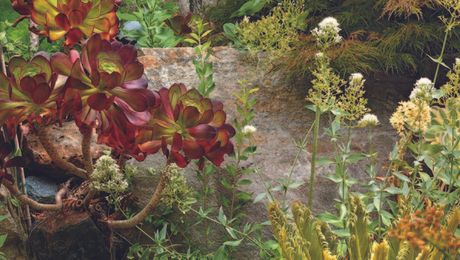










Comments
Log in or create an account to post a comment.
Sign up Log in